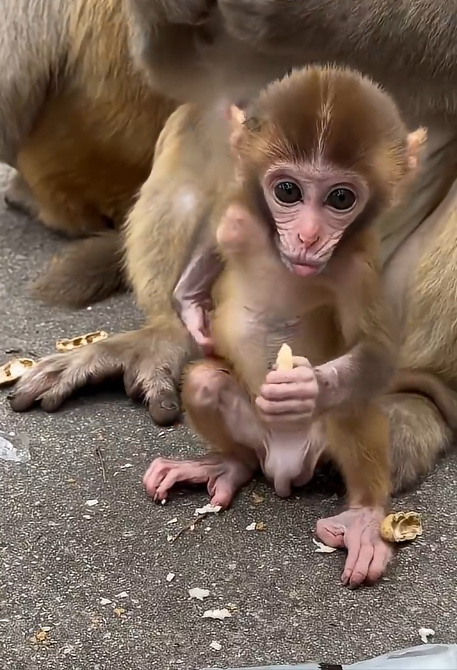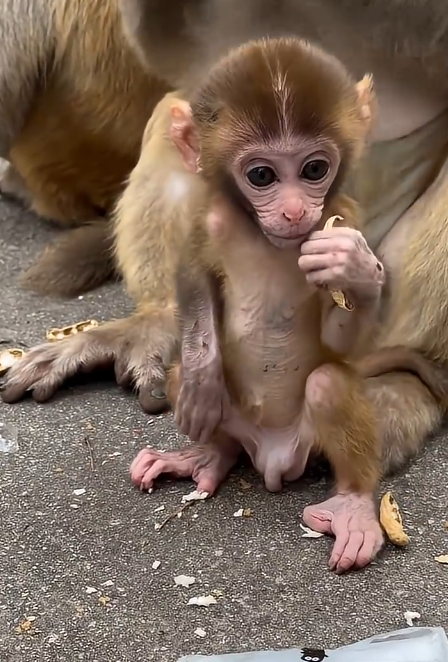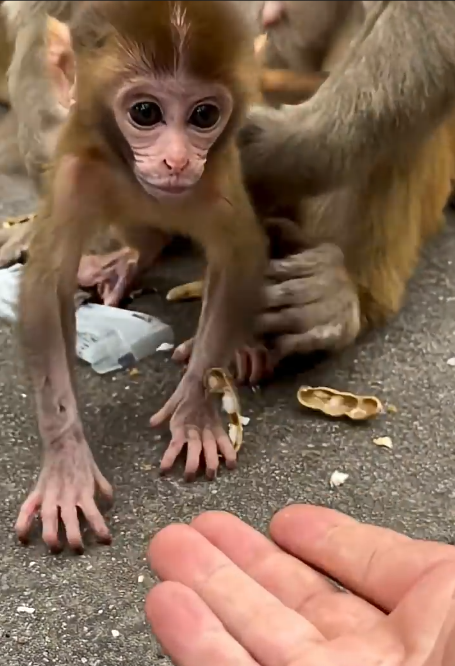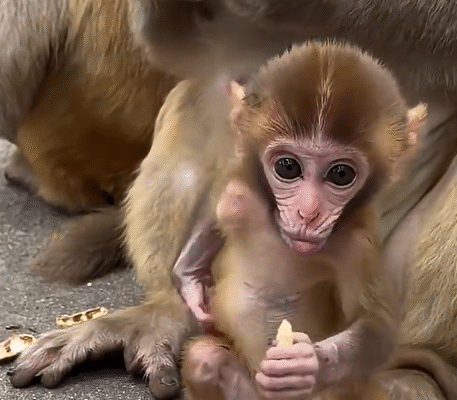
In the bustling heart of a tropical forest, a troop of monkeys lived in a delicate balance of chaos and cooperation. Leaves shimmered under the sun, the branches swayed gently, and the air buzzed with the sounds of insects and birds. Among this lively troop, there was one monkey who stood out—not because of her size or strength, but because of her extraordinary cleverness. Her name was Miko.
Miko was small but incredibly agile, with bright, intelligent eyes that seemed to miss nothing. While other monkeys spent their days leaping from branch to branch, chattering, or scavenging for food, Miko had a knack for observing everything around her. She noticed patterns in the humans who occasionally wandered near the forest edge, understood the moods of her troop, and could even predict which trees would bear the ripest fruits at any given time. But what truly set Miko apart was her inventive mind; she could solve problems that left the rest of her troop scratching their heads.
One morning, a group of humans arrived at the forest, carrying baskets full of fruits. They were researchers, or perhaps tourists, but their presence sent a ripple of excitement—and anxiety—through the troop. Monkeys of all ages chattered nervously, hiding in the canopy, while the younger ones clung tightly to their mothers. Among them, Miko observed everything, her eyes following the humans’ every move. She noticed their habits: how they placed baskets on the ground and how they tended to leave a path of scattered fruit in their wake.
The humans had brought something unusual that day: a puzzle box designed to test problem-solving skills. It was filled with bananas, but the box had a lock that required manipulation to open. The humans placed it on a low branch, thinking it would attract the monkeys and make for a fun observation. Little did they know, Miko was already analyzing the box. She studied the latches, the small knobs, and the hidden compartments with meticulous attention, her mind working faster than the humans could imagine.
As the other monkeys approached hesitantly, Miko devised a plan. She watched as a few of the younger monkeys pawed at the box, failing to open it. The humans laughed, clapping and pointing, completely unaware that the smartest member of the troop was already formulating her strategy. With a quick glance at the group, Miko signaled subtly to one of her friends, a mischievous young monkey named Tiko. Together, they executed a plan that combined observation, timing, and a little bit of playful deception.

First, Miko distracted the humans. She leaped onto a nearby branch, pretending to struggle with a vine tangled around her foot. The humans, thinking she was having difficulty, bent down to help—or at least to observe more closely. Meanwhile, Tiko nudged smaller monkeys closer to the box, pretending to fumble with the latch. The humans chuckled at what they thought was an entertaining display of monkey clumsiness.
Then came the genius moment. Miko, from her vantage point above, had noticed a small lever on the underside of the box—a part that the humans had overlooked completely. With a precise flick of her nimble fingers, she pushed it, and the latch clicked open. Bananas tumbled out, and the younger monkeys squealed with delight, rushing to grab the sweet prize. The humans were astonished, snapping photos and exclaiming at the “incredible intelligence” of the troop. They had no idea that it was Miko who had orchestrated the entire event.
Miko didn’t stop there. She knew that the humans would likely try to replicate the puzzle the next day, thinking the success was a random accident. So she created a clever diversion. She nudged a large leaf onto the ground near the humans’ path, causing them to trip slightly and lose their balance—though no one was hurt. Meanwhile, she led her troop through a series of swinging maneuvers and high jumps that made it look as though they were merely playing. In reality, Miko had mapped out escape routes, ensuring that every monkey could enjoy the bananas safely without coming into direct contact with the humans.
By the time the humans recovered, Miko was already perched high in the trees, munching a banana with calm satisfaction. Her eyes sparkled with mischief and pride. The troop gathered around her, chattering excitedly, clearly recognizing her leadership and cleverness. Even older monkeys, usually slow to acknowledge anyone younger than themselves, seemed to defer to her authority. Miko had not only outsmarted the humans but had done so in a way that protected and rewarded her entire troop.
News of Miko’s antics spread quickly through the forest, though not in words but in the subtle social cues of the troop. Younger monkeys began to watch her more closely, mimicking her movements and studying her tactics. The older monkeys respected her cleverness, knowing that she could anticipate danger, secure food, and lead the troop with intelligence and cunning. Miko had become a legend among her peers—a true strategist in a world where survival often depended on both strength and wit.
As days passed, Miko continued to outsmart not only the humans but rival troops and other forest challenges. She found innovative ways to access hidden fruits, avoid predators, and even trick other animals that tried to steal from her troop. Her reputation as a problem-solver grew, and she became a symbol of intelligence, creativity, and leadership. Other monkeys began to look up to her, not just for her daring actions but for the careful planning and thoughtfulness behind them.

One particularly sunny afternoon, Miko noticed a group of humans setting up cameras near a river to observe the troop. Instead of panicking, she hatched another plan. She led her troop on a coordinated “playful” run along the branches, making it look as though they were aimlessly swinging, when in reality they were moving strategically to avoid the cameras while still enjoying the fruits and nuts along the riverbank. The humans filmed hours of footage, convinced they had captured the monkeys’ natural behavior, unaware that every move was part of Miko’s intricate orchestration.
By the end of the day, Miko sat atop the highest branch in the troop’s territory, looking out over the forest. She had not only secured food, safety, and fun for herself and her troop, but she had also demonstrated the power of cleverness over brute force. In a world where survival was often a matter of instinct and strength, Miko had shown that intelligence, observation, and strategy could be just as valuable—sometimes even more so.
Her story became a legend in the troop, shared through gestures, playful chattering, and imitation. Miko had outsmarted everyone—humans, rival animals, and even her own troop in playful ways—proving that sometimes, the smallest and seemingly unassuming creatures could have the sharpest minds. The forest seemed to acknowledge her brilliance; even the birds seemed to sing a little louder, the leaves shimmered a little brighter, and the breeze carried the whispers of a monkey who had truly outwitted the world around her.
By nightfall, Miko rested in her favorite tree, her belly full of bananas, her mind already racing with new ideas for tomorrow. She was a leader, a protector, and a strategist, and the forest had learned to respect her cunning. In the end, it wasn’t just about food or survival—it was about proving that wit, intelligence, and creativity could change the game entirely. And in that moment, Miko, the small monkey with the bright eyes and brilliant mind, had outsmarted everyone, leaving the forest buzzing with admiration and the humans scratching their heads in awe.



